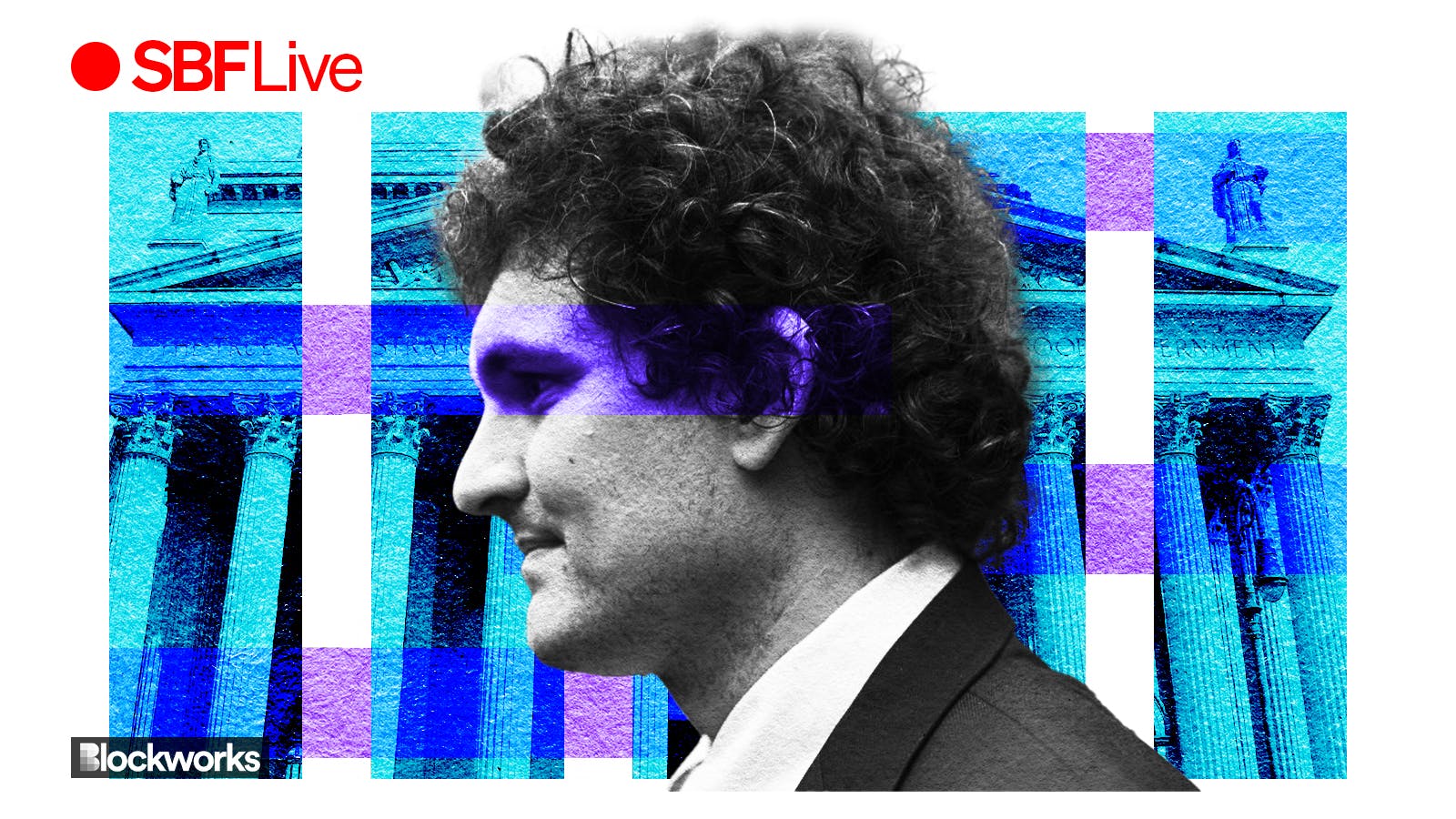Co-founder Wang says FTX code allowed Alameda’s ‘unlimited withdrawals’
Two former FTX and Alameda employees, Gary Wang and Adam Yedidia, as well as Paradigm co-founder Matt Huang, testified in court Thursday

Artwork by Crystal Le
FTX co-founder and former Chief Technology Officer Gary Wang told a court Thursday that he built “special privileges to Alameda Research” into the exchange code he wrote.
The jury heard testimony from three witnesses in Manhattan today as part of the trial of Sam Bankman-Fried: Wang, former FTX developer Adam Yedidia, and Paradigm co-founder Matt Huang.
Co-founder in focus
Wang, whose account closed out the day, said Bankman-Fried directed him to provide advantages for Alameda not available to FTX customers, such as the ability to place orders slightly faster than other market makers.
This disclosure came as part of a broader admission of financial crimes by Wang. In the statement, Wang admitted that he committed securities fraud, wire fraud and commodities fraud. He alleged that other FTX insiders, including Bankman-Fried, Caroline Ellison and Nishad Singh, also committed such crimes.
Wang pleaded guilty last December and agreed to cooperate with prosecutors, as Blockworks previously reported.
Read more: SBF said FTX was not ‘bulletproof’ months before demise, testimony reveals
Wang explained that these privileges meant that Alameda could make unlimited withdrawals from its accounts, even if the balance went negative or below zero. A normal trader would need sufficient funds or enough collateral to withdraw, Wang said.
None of these advantages were known to the public, Wang said.
Alameda’s special privileges, according to Wang, culminated in a $8 billion hole — liabilities owed to FTX customers by the time the exchange entered bankruptcy last year.
Prosecutors pressed Wang on Alameda’s $65 billion line of credit, because Alameda served as a market maker and liquidity provider on the exchange. Wang said that typically, market makers have a line of credit in the millions, not the billions.
“With a B,” Wang emphasized.
The prosecution sought to demonstrate that Bankman-Fried and Wang were unequal within the FTX/Alameda power structure — specifically, that Bankman-Fried was at the helm as he allegedly stole funds from FTX customers.
To support this argument, prosecutors showed a signed document that said Bankman-Fried owned 90% of Alameda, while Wang owned 10%. Similarly, they demonstrated that Bankman-Fried was the majority owner of FTX.
In the event of a disagreement, “in the end, it was Sam’s decision to make,” Wang testified.
Other perspectives
By contrast, the testimony from Paradigm’s Huang represented a zoomed-out view — specifically, how FTX’s collapse impacted venture capital firms like his.
Huang testified that he held concerns about the “entanglement” between FTX and Alameda when he was considering making an investment into FTX. But Paradigm moved forward with its investment, as the perceived strengths and opportunities were too compelling to pass, according to Huang.
In total, Paradigm invested around $278 million into FTX and FTX US, the exchange’s American affiliate. Asked about the current valuation by the prosecution, Huang told the court: “We have marked it down to zero.”
Today’s court proceedings also featured some momentary drama.
Yedidia, also a college friend of Bankman-Fried, bluntly told the court that “FTX defrauded all its customers.”
Yet this statement was later ultimately stricken from the court record, a move both parties agreed upon.
Get the news in your inbox. Explore Blockworks newsletters:
- The Breakdown: Decoding crypto and the markets. Daily.
- 0xResearch: Alpha in your inbox. Think like an analyst.






